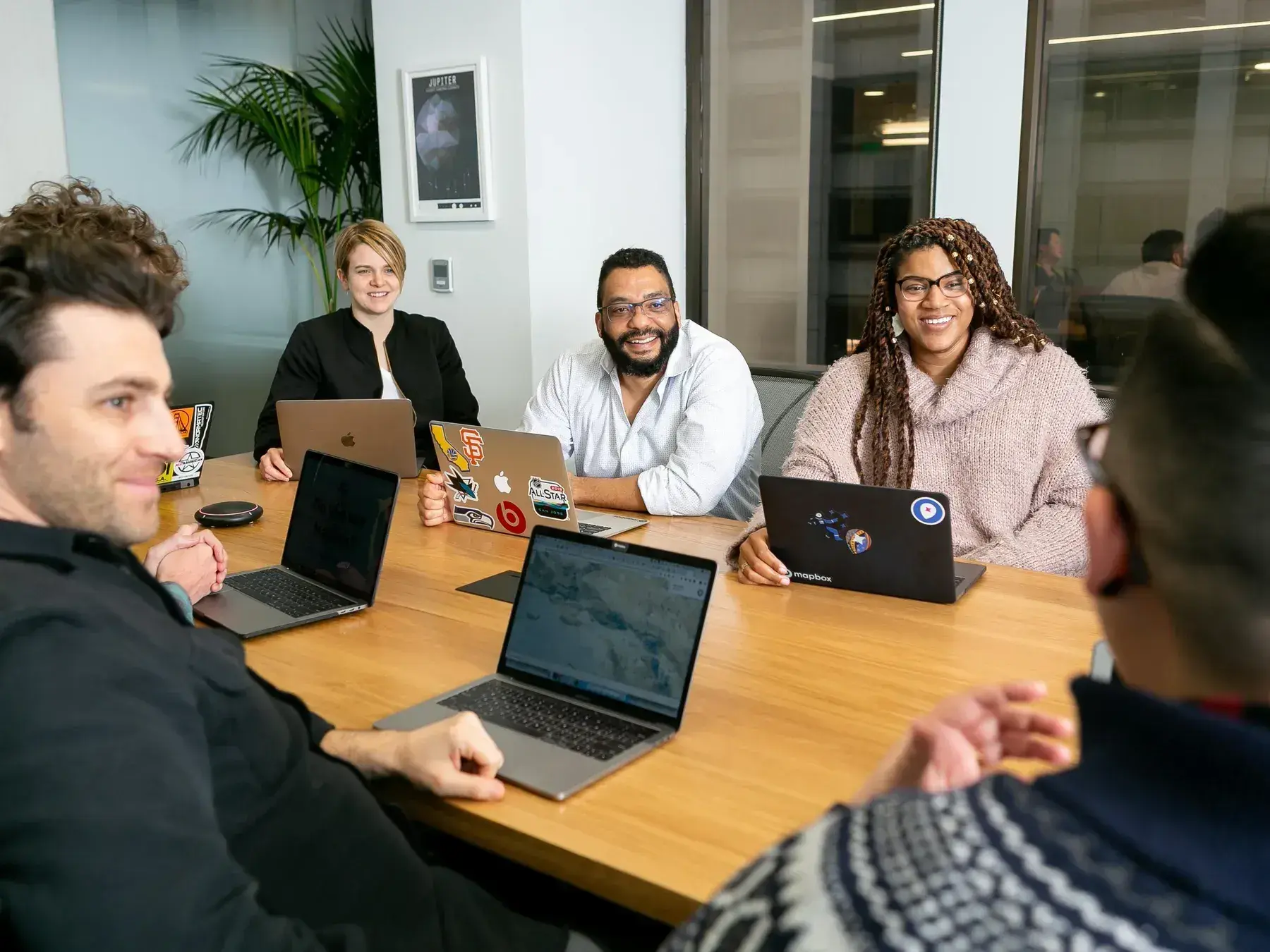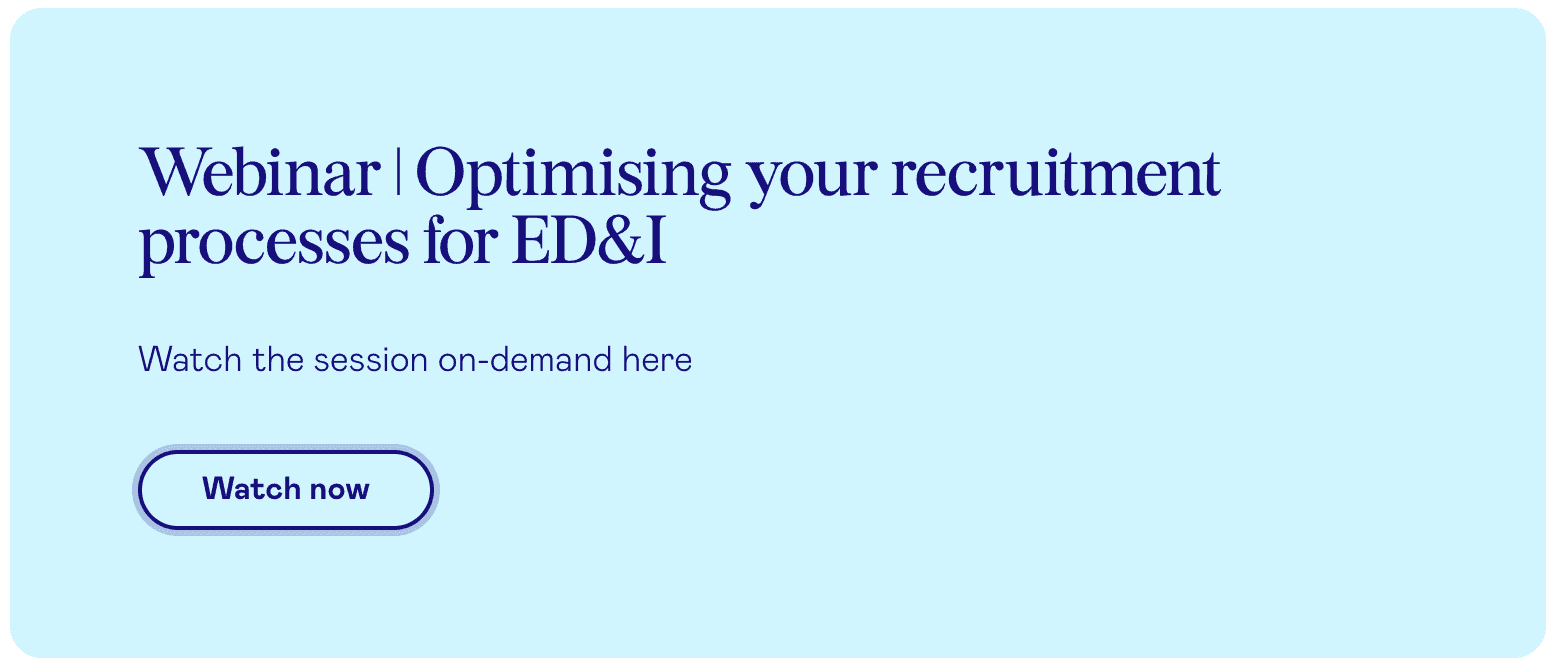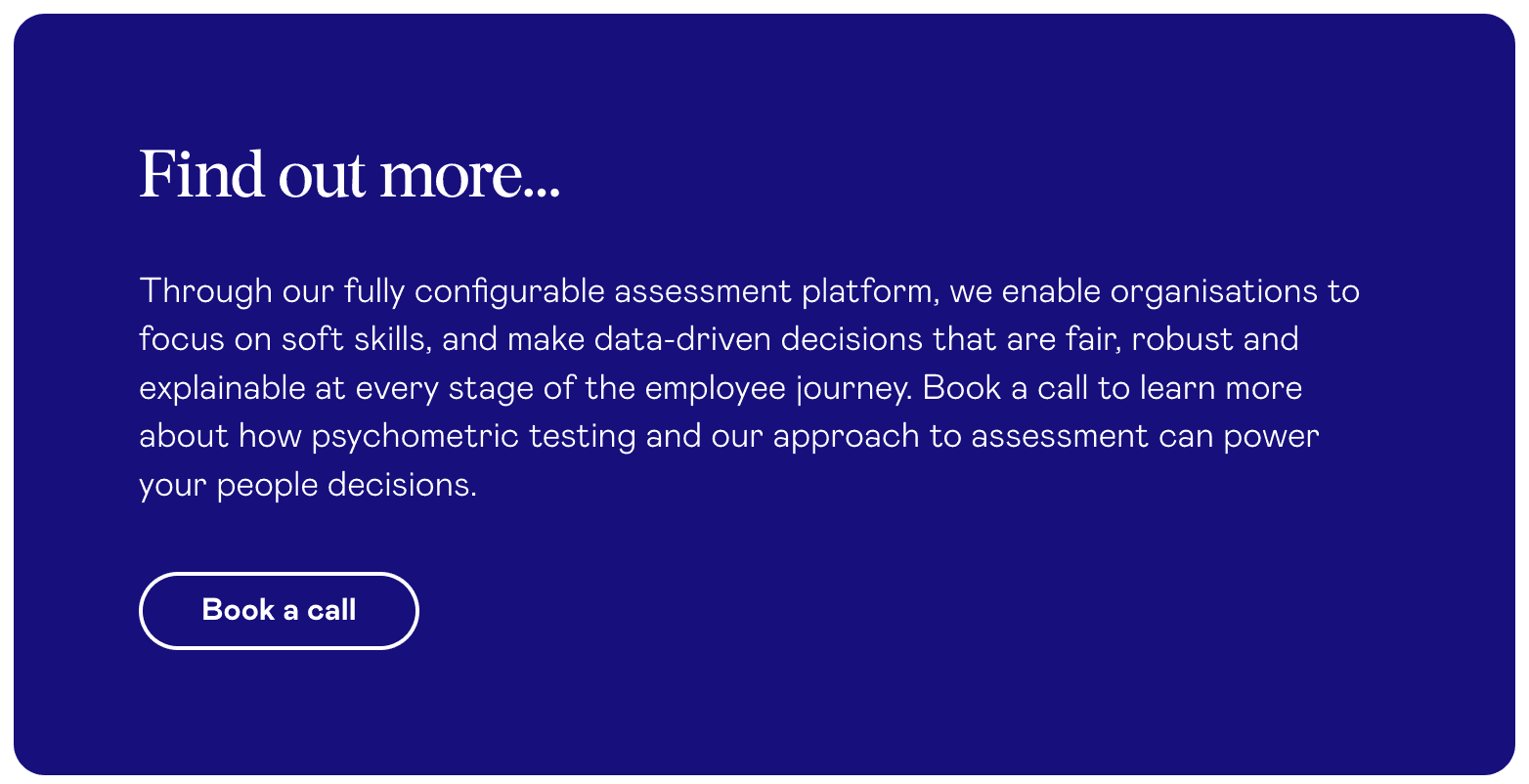Take a sneak peek of the product with an interactive tour | View now
Optimising your recruitment processes for EDI

Inequality and inequity persist in society. People from various demographic groups and backgrounds continue to experience a lack of social mobility as well as unfair treatment and discrimination.
This is acutely apparent in the world of work, where significant group differences remain in terms of pay, opportunity, job security, and fair and respectful treatment. For example, research by Pearn Kandola found that candidates from minority ethnic groups need to have eight years’ more experience than a white candidate to access the equivalent employment opportunity.
Sova’s Dr. Alan Bourne, Lucie Ilbury and Hema Bakhshi recently hosted a panel discussion, focussing on how we can support organisational equity, diversity and inclusion through equitable assessment.
Why does inequity persist in the workplace?
Equity, diversity and inclusion (EDI) has never been more important for employers, says Alan. However, many organisations struggle to maintain momentum or continue to make a difference. The biggest hurdles to overcome? Firstly, indifference, says Alan. The fact that progress has been made over the last 20 years is a positive, but it’s not a reason to stop pushing for positive change.
Secondly, the pressures on individuals to work at speed. This pressure can lead to shortcuts being made in the recruitment process through the choice of tools and methods used to sift candidates. Lastly, bias which is a powerful force and one in which an in-group/ out-group effect is systematic and pervasive. The answer? To be systematic and pervasive in our response. Hema agrees, adding that although we have made progress, we have not achieved enough in terms of equity in the workplace.
“In a fast-moving situation, the speed and agility demanded of individuals and teams puts pressure on people and that causes people to rely on short cuts. Mistakes happen when you try to act quickly. When you apply this to hiring it’s dangerous. That doesn’t mean you can’t hire quickly, but you have to do it well.” - Alan Bourne, Sova Assessment
Lucie brings the lens onto the broader landscape of social mobility, unfairness, and injustice in society which take indirect as well as direct forms. Research tells us that within the workplace, indirect discrimination has a profound and damaging effect on inclusion (see Pearn Kandola’s Racism at Work webinar series for more information).
Subtle adverse impact in the workplace has a negative effect on individual confidence and mental health and wellbeing which results in individuals not putting themselves forward for opportunities for promotion and new roles (for example 49% of people from ethnic minority groups feel they cannot be themselves at work). This is an undercurrent that needs to be addressed, says Lucie.
“Equality is not enough. It cannot be about equal opportunity as everyone is not starting from the same position. The entrenched nature of some of the biases we know occur have had an impact on certain sectors of society so that it is not enough to just give everyone equal opportunity. We need to recognise that certain groups are disadvantaged and do everything that we can do to level the playing field.” - Lucie Ilbury, Sova Assessment
Equity requires us to be aware of the intersectional nature of influences in the workplace. If we look at certain categories in terms of demographics and try to fill a quota, we present a one-dimensional view of individuals, says Lucie. For example, we know from our data that a lack of upward mobility is more pronounced for women when we overlay ethnicity as well as gender. People belong to more than one group, and we need to recognise in the way we capture and apply data.
“It’s important for leaders to look at the economic and societal backdrop against which we are operating. Everyone in that organisation, and prospective candidates, are operating in a challenging environment. There are heightened tensions everywhere, we are seeing social injustice vividly on our screens. Yes, we have made progress, but we have not achieved enough.” - Hema Bakhshi, Sova Assessment
Why invest in assessment that supports equity, diversity and inclusion?
As HR and assessment professionals we have a huge opportunity to bring about better workplace equity. The frameworks that we put in place influence not only who we bring into the organisation but also development opportunities, promotion and through them, organisational culture.
Assessment professionals have the opportunity to make assessment inclusive, or conversely to just replace what the organisation currently has. Here’s why an equitable approach makes sense for the business, for teams and for society, according to our panellists:
- A small change to how you assess talent has much wider repercussions. Fairer decision making in recruitment and selection is the foundation for pipelining, succession planning and development so inclusive assessment is the foundation for more equitable career outcomes.
- An equitable approach ensures that assessment of talent is fair, and data led. It supports diversity which we know benefits innovation, ideation and has an impact on the bottom line.
- There are thousands of touchpoints in the assessment process and each one can be fair and optimal. If each touchpoint is not fair, and hiring and selection is taking place at scale, there is a risk of damaging ED&I and further embedding bias.
- As leaders we have a responsibility to create more equitable teams, because this creates more businesses and through that, more equitable society. Leaders can play a part in the wider achievement of social justice
What are the biggest risks during assessment that can threaten ED&I? And how can they be mitigated?
Effective approaches require the right people, processes, and systems to work together to create meaningful and lasting change:
- Set the role requirements. A narrow perspective on what good looks like in a role will result in the organisation doing nothing more than replicating the status quo. Be wary of relying on the person currently in the role or on gut feel. Challenge your own thinking, take a future oriented view of the role and conduct research before defining the role requirements.
- Define what to assess. Don’t rely on arbitrary criteria that lack an evidence base. For example, organisations sometimes pay too much attention to which university a candidate attended but we know from research that this is a poor indicator of performance. Likewise, be careful of ‘hurdled’ assessments that measure only one discrete element of performance at a time as you might rule out strong candidates early in the process purely because of poor assessment design.
- Choose assessments carefully. Avoid assessments that are shown to produce biased outcomes. Ask your provider for information that proves the fairness of an assessment you are considering. Assessment includes human assessors too so ensure they are well trained. Unconscious bias training has become popular, but research shows that it is not as effective at facilitating behaviour change as we’d like to believe.
- Invest in candidate care. Rather than ED&I being a box-ticking or target-focused exercise, become more inclusive in how the organisation hires overall. Look at every touch point, the language and methods used and consider whether candidates will feel truly valued for who they are and what they could bring to the organisation.
- Ensure diverse inputs. Both in the design process and in implementation. In design, garner a wide range of views on the selected assessments. In implementation, use a wide range of well-trained assessors. Optimise human performance by ensuring that interviewers have breaks and that you support them to perform at their best so that new approaches become second nature.
- Capture the right data. Data capture needs to be broad enough to be able to turn it into insight – for example, think of the intersectionality discussed earlier. Data should enable you to recognise the root cause of issues. The ethical use of AI and machine learning have a role to play here in helping to overcome, rather than embed, bias.

